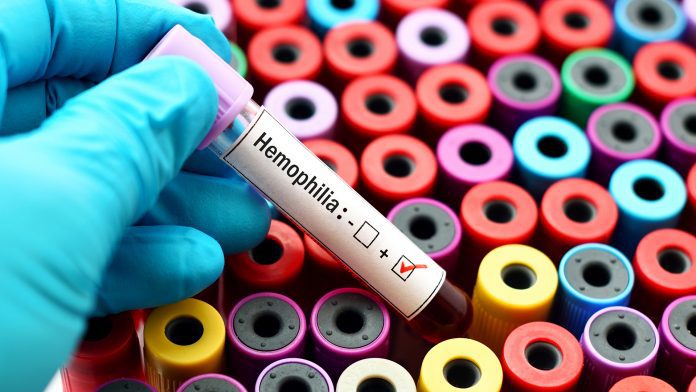
Findings from two University Hospital Bonn studies could lead to significant changes in haemophilia treatment.
Haemophilia A, which almost exclusively affects males, is the most common form of haemophilia. The disease can usually be treated easily; however, treatment can be ineffective in some patients. Two recent studies from the Haemophilia Centre of the University Hospital Bonn may have identified a solution to this problem.
The studies have been published in the New England Journal of Medicine and Lancet Haematology.
A genetically modified haemophilia treatment
Patients with haemophilia A lack the coagulation factor VIII, which is essential in the blood clotting process and stops excessive bleeding. In the trial, a new drug called Efanesoctocog Alpha was assessed as a potential haemophilia treatment.
Efanesoctocog Alpha is the first drug containing a genetically engineered version of factor VIII. The drug has a significantly prolonged action duration of 47 hours. A study of 133 patients found that Efanesoctocog Alpha increased blood clotting after four days of use and reduced cases of bleeding after seven days.
The average number of incidents of bleeding was reduced from three bleedings every 12 months with the classical haemophilia treatment, to only one bleeding episode in 18 months with the use of Efanesoctocog Alpha.
Genetic modifications made to the factor VIII protein contributed to these positive long-term results. By blocking the binding to the Von Willebrand factor, which determines the speed of factor VIII clearance, Efanesoctocog Alpha can effectively clot the blood.
Treating patients with moderate cases of haemophilia
A parallel study of the haemophilia treatment emicizumab was conducted on patients with less severe forms of the disease. The patients involved in this study had comparatively little bleeding, so bleeding-preventive therapy with multiple intravenous administrations per week was deemed unfeasible for many patients.
Prior to this research, emicizumab was the only approved for use on patients who had severe cases of haemophilia A treatment. However, the study showed positive results for the use of emicizumab in patients with a less severe form of haemophilia A.
On average, patients treated with emicizumab had an average of less than one bleeding episode per year. Emicizumab was approved as a haemophilia treatment for patients with moderately severe cases shortly after the publication of the study.
“Efanesoctocog Alpha, with its prolonged duration of action and emicizumab for patients with a moderate course of the disease, represent important milestones in the treatment of haemophilia A patients. This prevents bleeding and its consequences, especially joint damage, and severe pain so that patients with haemophilia A continue to have a good quality of life in adulthood,” said Professor Johannes Oldenburg, director of the Institute for Experimental Haematology and Transfusion Medicine at University Hospital Bonn.










